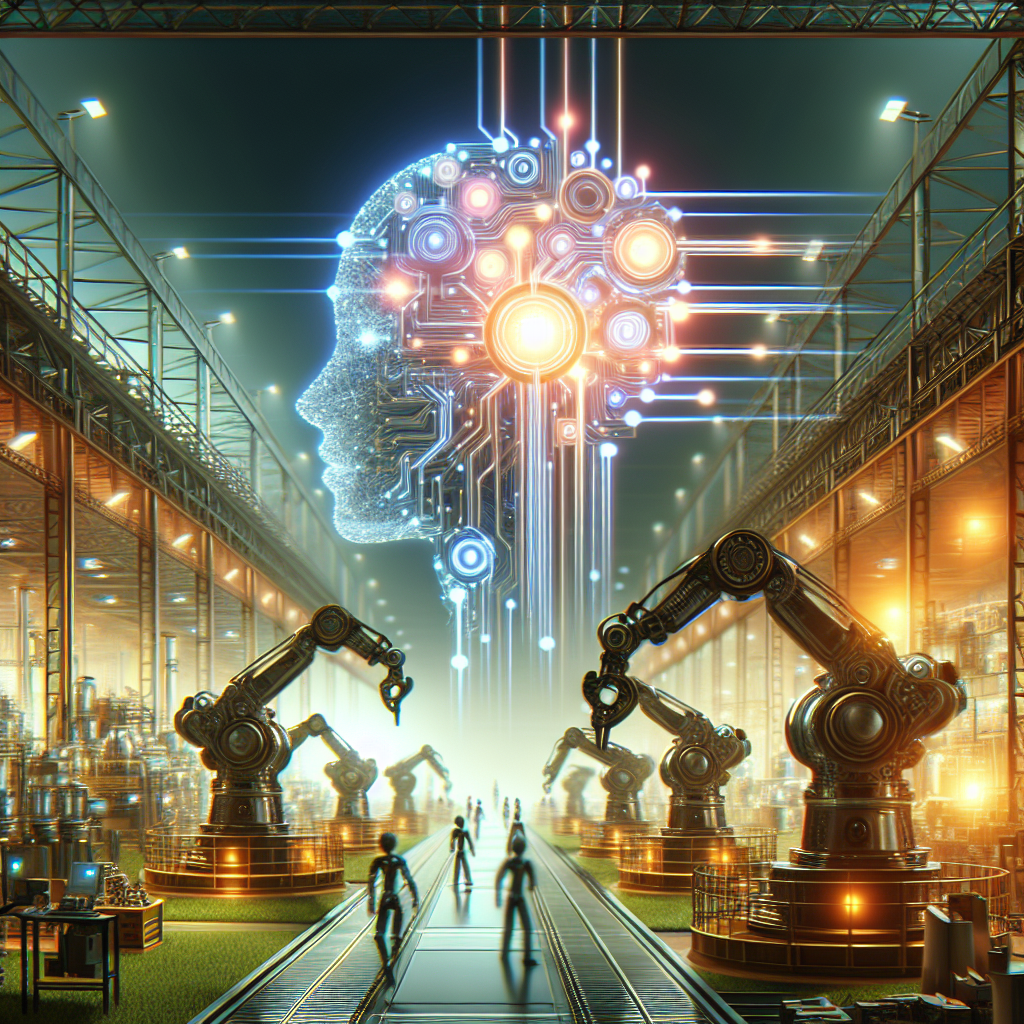Revolutionizing Industries with Artificial General Intelligence
Artificial General Intelligence (AGI) is the next frontier in technology, promising to revolutionize industries across the board. AGI refers to a type of artificial intelligence that can understand, learn, and apply knowledge across a wide range of tasks, similar to human intelligence. While current artificial intelligence systems are designed for specific tasks, AGI has the potential to perform a variety of tasks with the same level of skill and adaptability as a human.
As AGI technology continues to advance, industries are beginning to see the transformative power that it holds. From healthcare to finance to transportation, AGI is poised to disrupt traditional practices and create new opportunities for growth and innovation. In this article, we will explore how AGI is revolutionizing industries and what the future holds for this groundbreaking technology.
Healthcare
One of the most promising applications of AGI is in the field of healthcare. AGI has the potential to revolutionize medical diagnosis, treatment planning, and drug discovery. By analyzing vast amounts of medical data and identifying patterns and trends, AGI can provide more accurate and personalized diagnoses, leading to better patient outcomes. Additionally, AGI can help healthcare providers optimize treatment plans and discover new drugs more quickly and efficiently.
Finance
The finance industry is another sector that stands to benefit greatly from AGI. AGI can analyze market data in real-time, identify trends, and make predictions with a level of accuracy that is unmatched by human analysts. This can help financial institutions make better investment decisions, manage risk more effectively, and improve overall performance. Additionally, AGI can help detect fraud and money laundering more efficiently, saving financial institutions billions of dollars each year.
Transportation
AGI is also poised to revolutionize the transportation industry. With the advent of autonomous vehicles, AGI can help improve traffic flow, reduce accidents, and increase overall efficiency. By analyzing real-time traffic data and making split-second decisions, AGI can help vehicles navigate complex roadways safely and efficiently. Additionally, AGI can optimize logistics operations, reducing costs and improving delivery times for businesses.
Retail
The retail industry is another sector that is being transformed by AGI. AGI can help retailers better understand consumer behavior, predict trends, and personalize marketing campaigns. By analyzing customer data and identifying patterns, AGI can help retailers target the right customers with the right products at the right time. Additionally, AGI can help retailers optimize inventory management, reduce costs, and improve overall efficiency.
Manufacturing
AGI is also revolutionizing the manufacturing industry. AGI can help optimize production processes, improve quality control, and reduce downtime. By analyzing sensor data and identifying patterns, AGI can help manufacturers predict equipment failures before they occur, saving time and money. Additionally, AGI can help manufacturers streamline supply chain operations, reduce waste, and improve overall productivity.
FAQs
Q: What is the difference between AGI and other types of artificial intelligence?
A: AGI is a type of artificial intelligence that can understand, learn, and apply knowledge across a wide range of tasks, similar to human intelligence. Other types of artificial intelligence, such as narrow AI, are designed for specific tasks and lack the ability to adapt to new situations.
Q: How is AGI different from machine learning?
A: Machine learning is a subset of artificial intelligence that focuses on building algorithms that can learn from data and make predictions. AGI, on the other hand, aims to create systems that can understand, learn, and apply knowledge across a wide range of tasks.
Q: What are the potential benefits of AGI?
A: AGI has the potential to revolutionize industries by improving efficiency, reducing costs, and driving innovation. AGI can help businesses make better decisions, optimize processes, and improve overall performance.
Q: What are the potential risks of AGI?
A: While AGI holds great promise, there are also potential risks associated with its development. These include job displacement, ethical concerns, and the potential for misuse of the technology. It is important for businesses and policymakers to address these risks proactively to ensure that AGI is developed and used responsibly.
In conclusion, Artificial General Intelligence has the potential to revolutionize industries across the board. From healthcare to finance to transportation, AGI is poised to disrupt traditional practices and create new opportunities for growth and innovation. As the technology continues to advance, businesses must prepare for the transformative impact that AGI will have on their operations. By embracing AGI and leveraging its capabilities, businesses can stay ahead of the curve and position themselves for success in the digital age.

